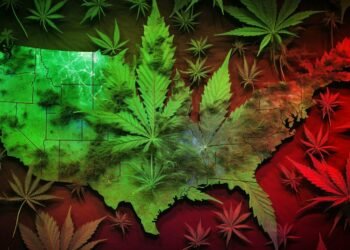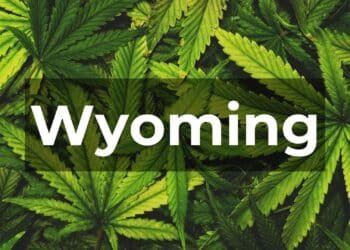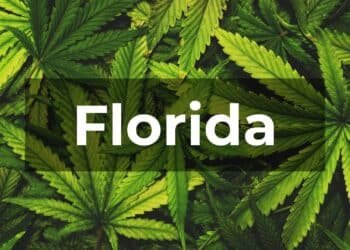Welcome to our comprehensive guide on marijuana laws in Hawaii. If you’re wondering whether marijuana is legal in the Aloha State, the answer is yes, but with some restrictions. While Hawaii has legalized medicinal marijuana, recreational use is still illegal. However, recent legislation has decriminalized possession of small amounts of the drug. In this article, we’ll take a deep dive into the history of marijuana legislation in Hawaii, the current laws and regulations around its use, and the potential benefits and drawbacks of legalization. So, let’s get started!
History of Marijuana Legislation in Hawaii
Marijuana legislation in Hawaii has a long and complicated history. The state was one of the first to pass a medical marijuana program in 2000, but recreational use is still illegal.
During the early 1900s, Hawaii was a major producer of cannabis, and it was considered a valuable cash crop. However, in 1931, the state began to crack down on its use and possession, and by 1937, it was fully outlawed.
Over the years, there were several attempts to decriminalize or legalize marijuana, but they were largely unsuccessful until the state’s medical marijuana program was enacted. This allowed patients with certain medical conditions to use marijuana with a doctor’s recommendation, but it was heavily regulated.
Recent Changes in Hawaii’s Marijuana Legislation
In recent years, Hawaii has made some changes to its marijuana legislation. In 2018, the state passed a law allowing medical marijuana patients to purchase cannabis-infused edibles from licensed dispensaries.
Additionally, in 2019, a bill was introduced to legalize recreational marijuana, but it did not pass. However, the state did decriminalize possession of three grams or less of marijuana, making it a civil violation instead of a criminal offense.
| Year | Legislation |
|---|---|
| 1937 | Marijuana fully outlawed in Hawaii |
| 2000 | Medical marijuana program enacted |
| 2018 | Patients allowed to purchase cannabis-infused edibles from dispensaries |
| 2019 | Decriminalization of possession of three grams or less of marijuana |
“Hawaii was one of the first states in the US to legalize medical marijuana, but recreational use is still illegal.”
It’s important to note that while Hawaii has made some progress in its marijuana legislation, it is still illegal under federal law. This can create challenges for businesses and individuals who want to enter the cannabis industry or use marijuana for personal reasons.
Overall, marijuana legislation in Hawaii continues to evolve, and it will be interesting to see what changes the future holds.
Medical Marijuana in Hawaii
Hawaii has had a medical marijuana program in place since the year 2000. The program has gone through several revisions since its inception, and as of 2021, it allows patients with certain medical conditions to use medical marijuana.
To be eligible for the program, patients must have a qualifying medical condition, such as cancer, glaucoma, or HIV/AIDS, among others. Patients must also have a recommendation from a qualified healthcare provider and register with the Hawaii Department of Health.
Once registered, patients may purchase medical marijuana from licensed dispensaries across the state. Additionally, patients may grow up to ten plants for personal use, as long as they have a valid cultivation registration.
In 2019, Hawaii passed legislation to expand the medical marijuana program by adding new qualifying medical conditions, increasing the amount of allowed THC in medical marijuana products, and removing a requirement for patients to have a designated caregiver.
It is important to note that while marijuana is legal for medical use in Hawaii, it is still illegal under federal law. Patients should be aware of the risks associated with using medical marijuana and should consult with their healthcare provider before beginning use.
Recreational Marijuana in Hawaii
While Hawaii has had a medical marijuana program since the year 2000, the state has not yet legalized recreational marijuana. Despite this, there has been some progress towards legalization in recent years.
In 2019, a bill was introduced that would have legalized recreational marijuana in Hawaii. However, the bill failed to pass through the state legislature. Another bill was introduced in 2021 that would establish a tax and regulatory structure for adult-use cannabis, but it is still in the early stages of the legislative process.
Currently, possession of any amount of marijuana for recreational use is illegal in Hawaii. This applies to both locals and visitors, and the penalties can be severe. Possession of up to three grams of marijuana is a misdemeanor offense that can result in up to 30 days in jail and a $1,000 fine. Possession of more than three grams is a felony offense that can result in up to five years in prison and a $10,000 fine.
Despite the lack of legalization, Hawaii does have dispensaries that sell medical marijuana to qualified patients. These dispensaries are regulated by the state and require patients to have a medical marijuana card to purchase and use cannabis products.
Recreational Marijuana Dispensaries in Hawaii
As recreational marijuana is currently illegal in Hawaii, there are no dispensaries that sell cannabis products for non-medical use. However, there are several dispensaries throughout the state that do sell medical marijuana to qualified patients.
These dispensaries are regulated by the Hawaii Department of Health and are required to follow strict guidelines for production, packaging, and labeling of cannabis products. Patients with qualifying medical conditions can apply for a medical marijuana card through their physician.
Possession Laws and Penalties
In Hawaii, possession of any amount of marijuana is considered a misdemeanor offense. However, the penalties vary depending on the amount of marijuana in possession.
| Amount of Marijuana | Possible Penalty |
|---|---|
| 3 grams or less | No jail time, up to $1300 fine |
| More than 3 grams to 1 ounce | Up to 30 days in jail, up to $1500 fine |
| More than 1 ounce to 1 pound | Up to 1 year in jail, up to $2000 fine |
| More than 1 pound | Up to 5 years in jail, up to $10,000 fine |
It’s important to note that these penalties are for possession only and do not include the sale or distribution of marijuana, which carry much harsher penalties.
If caught with any amount of marijuana on federal property or national parks within Hawaii, the offender can face federal charges, which carry even more severe penalties.
It’s crucial to be aware of Hawaii’s possession laws and their corresponding penalties to avoid any legal issues and ensure that you are using marijuana within the laws and regulations of the state.
Consumption Laws and Penalties
Consuming marijuana in Hawaii is legal for medical purposes with a valid medical marijuana card. However, recreational use is still illegal in the state. It is important to note that smoking marijuana in public is strictly prohibited, and violators can face fines and potential jail time.
Driving under the influence of marijuana is also illegal in Hawaii and could result in a DUI charge, which carries stiff penalties, including fines, possible jail time, and license suspension.
It is equally important for users to be aware of the quantity of marijuana they consume. Hawaii’s possession laws allow for up to three grams of marijuana concentrate or eight ounces of usable marijuana for medical use. Possession of more than these amounts could result in serious criminal charges and penalties, including jail time.
Additionally, while the consumption of edibles and other cannabis products is legal, the state has strict regulations that require the products to be properly labeled, childproof and not contain harmful additives.
Marijuana Cultivation Laws in Hawaii
Hawaii has specific laws and regulations regarding growing marijuana within the state. Individuals who wish to cultivate marijuana for personal use must adhere to these laws, or they may face penalties.
According to Hawaii’s marijuana cultivation laws, individuals are allowed to grow up to three mature plants and four immature plants for personal use, but these plants must be grown in a secure and enclosed space that is not visible to the public. Failure to grow marijuana in a secure and enclosed space may result in legal penalties.
It is also important to note that individuals who cultivate more than the allowed amount can face legal penalties, including fines and imprisonment. Commercial cultivation is strictly prohibited without the proper licenses, and penalties for those caught can be severe.
Hawaii’s marijuana cultivation laws are in place to ensure that individuals who cultivate marijuana for personal use do so responsibly. Failure to comply with these laws can result in legal consequences, so it’s essential to understand and follow them.
Federal Marijuana Laws and Hawaii
While Hawaii has legalized both medical and recreational marijuana, the drug remains illegal under federal law. This can create some confusion and uncertainty for both consumers and businesses operating within the state.
The Conflict Between State and Federal Laws
Under the federal Controlled Substances Act, marijuana is classified as a Schedule I drug, meaning it is considered to have a high potential for abuse and no accepted medical use. While individual states have the power to legalize marijuana under their own laws, federal law still prohibits its use, possession, and distribution.
This conflict between state and federal laws can create challenges for both consumers and businesses. For example, financial institutions may be hesitant to work with marijuana businesses for fear of violating federal money laundering laws. Similarly, federal law enforcement agencies could technically arrest and prosecute individuals for violating federal drug laws, even if they are operating legally under state law.
The Impact on Marijuana Businesses
The conflict between state and federal law can also impact marijuana businesses operating in Hawaii. For example, companies may be unable to access traditional forms of financing or banking services, as most financial institutions are federally regulated. Additionally, businesses may face challenges when it comes to transporting marijuana across state lines, as federal law prohibits the movement of controlled substances.
The Future of Federal Marijuana Laws
Despite the ongoing conflict between state and federal marijuana laws, there are signs that the federal government may be moving towards decriminalization or even legalization. In 2018, the Agricultural Improvement Act, also known as the Farm Bill, legalized hemp at the federal level. More recently, several bills have been introduced in Congress that would decriminalize or legalize marijuana at the federal level.
While it’s unclear when or if federal laws will change, it’s important for both consumers and businesses to be aware of the potential implications of the current conflict between state and federal laws.
Benefits of Marijuana Legalization in Hawaii
Marijuana legalization in Hawaii has the potential to bring about many benefits for the state and its residents. Here are some of the possible advantages:
- Economic benefits: Legalizing marijuana can create new jobs and generate revenue for the state through taxes and fees. This can help boost Hawaii’s economy and provide new opportunities for its residents.
- Reduced incarceration rates: The legalization of marijuana can reduce the number of people in Hawaii’s overcrowded prisons and jails, saving the state money on incarceration costs. This can also help to address issues of racial and social injustice in the criminal justice system.
- Improved public health outcomes: Legalizing marijuana can provide better access to medical marijuana for those who need it, as well as regulations that ensure safe and high-quality products are available. Additionally, legalizing marijuana can reduce the harm associated with the black market and illegal drug trade.
Other states that have legalized marijuana have seen varying degrees of success with these benefits. For example, Colorado has seen a significant increase in tax revenue and job creation since legalizing marijuana, while New Jersey has emphasized the social justice benefits of legalizing marijuana. Regardless of the approach taken, the benefits of legalizing marijuana in Hawaii could be significant.
“Legalizing marijuana can create new jobs and generate revenue for the state through taxes and fees.”
It is important to note that there are also potential drawbacks to marijuana legalization, and these should be considered alongside the benefits. However, with careful planning and implementation, the benefits of legalization could outweigh the drawbacks.
Drawbacks of Marijuana Legalization in Hawaii
While there are potential benefits to legalizing marijuana in Hawaii, there are also concerns about the negative impacts it may have on the state and its residents. Here are some of the potential drawbacks:
- Increased drug use: One concern is that legalizing marijuana could lead to increased use of other drugs, as well as the normalization of drug use in general.
- Public safety concerns: There are concerns about the potential for increased crime, impaired driving, and other public safety issues associated with marijuana use.
- Negative impacts on youth: Legalizing marijuana could lead to increased use among youth, which could have negative impacts on their brain development and academic performance.
- Federal law conflicts: Despite state legalization, marijuana remains illegal under federal law, which could lead to potential conflicts and challenges for businesses and individuals operating within the state.
- Regulation challenges: Regulating the marijuana industry can be challenging, as it requires a balance between ensuring public safety and allowing for individual freedom and business innovation.
It’s important to consider both the potential benefits and drawbacks of marijuana legalization when making decisions about cannabis legislation in Hawaii.
FAQs about Marijuana Legalization in Hawaii
As the laws around marijuana use in Hawaii continue to evolve, it’s natural to have questions about what is allowed and what isn’t. Here are some of the most frequently asked questions about marijuana legalization in Hawaii:
Is marijuana legal in Hawaii?
Yes, marijuana is legal for medical use in Hawaii with a valid medical marijuana card. However, recreational use of marijuana is still illegal, although the state is considering legalizing it in the future.
What conditions qualify for medical marijuana use in Hawaii?
There are several conditions that qualify for medical marijuana use in Hawaii, including cancer, glaucoma, epilepsy, multiple sclerosis, and HIV/AIDS.
How do I obtain a medical marijuana card in Hawaii?
To obtain a medical marijuana card in Hawaii, you must have a qualifying medical condition and obtain a recommendation from a licensed physician. You will then need to submit an application and pay a fee to the Hawaii Department of Health. Once approved, you will receive your medical marijuana card.
What are the possession limits for marijuana in Hawaii?
The possession limit for medical marijuana in Hawaii is four ounces of usable marijuana or seven plants, with no more than three mature plants. Possession of recreational marijuana is still illegal in Hawaii.
What are the penalties for possession of marijuana in Hawaii?
The penalties for possession of marijuana in Hawaii can vary depending on the amount in possession and the circumstances surrounding the possession. Possession of small amounts of marijuana for personal use typically results in a fine, while possession of larger amounts can result in more severe penalties.
What are the laws around smoking marijuana in public in Hawaii?
Smoking marijuana in public is illegal in Hawaii. It is only legal to smoke marijuana in private places, such as your own home.
Are there any restrictions on driving under the influence of marijuana in Hawaii?
It is illegal to drive under the influence of marijuana in Hawaii, just like it is illegal to drive under the influence of alcohol. If you are caught driving under the influence of marijuana, you could face serious penalties, including fines and jail time.
What are the laws around cultivating marijuana in Hawaii?
Personal cultivation of marijuana in Hawaii is allowed for medical marijuana patients, with limits on the number of plants allowed. Cultivation of marijuana for recreational use is still illegal in Hawaii.
Are there any conflicts between state and federal marijuana laws in Hawaii?
Yes, there are conflicts between state and federal marijuana laws in Hawaii, as marijuana is still illegal under federal law. However, the federal government has generally taken a hands-off approach to enforcing federal marijuana laws in states where marijuana is legal for medical or recreational use.
What are the potential benefits of marijuana legalization in Hawaii?
The potential benefits of marijuana legalization in Hawaii include increased tax revenue, reduced incarceration rates for nonviolent drug offenses, and improved public health outcomes for patients who use medical marijuana.
What are the potential drawbacks of marijuana legalization in Hawaii?
The potential drawbacks of marijuana legalization in Hawaii include increased drug use among youth, public safety concerns related to impaired driving, and potential negative impacts on the tourism industry.
Overall, the laws and regulations around marijuana use in Hawaii can be complex and difficult to navigate. It’s important to stay informed and educated about the latest developments in Hawaii’s marijuana laws to avoid potential legal issues.














